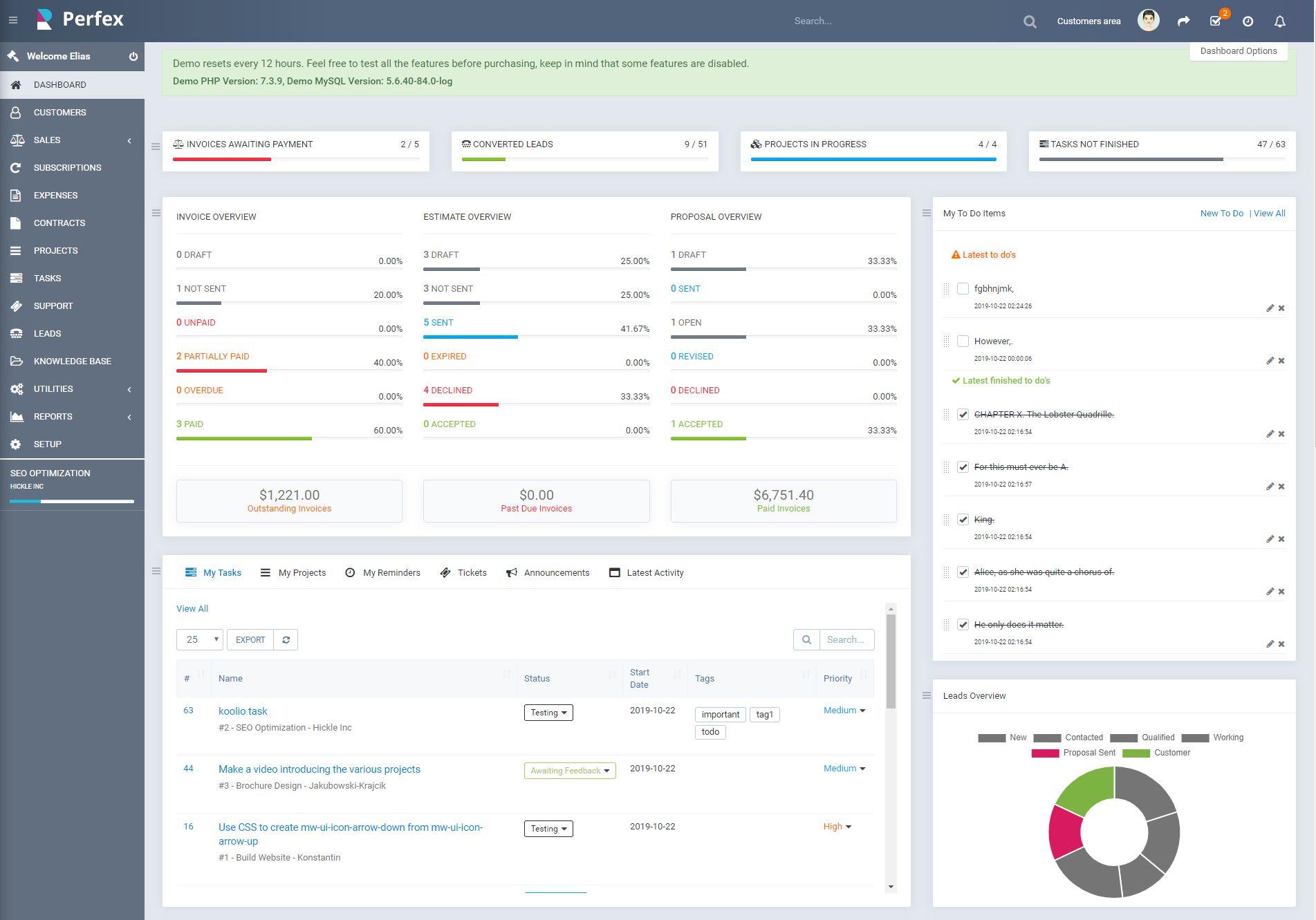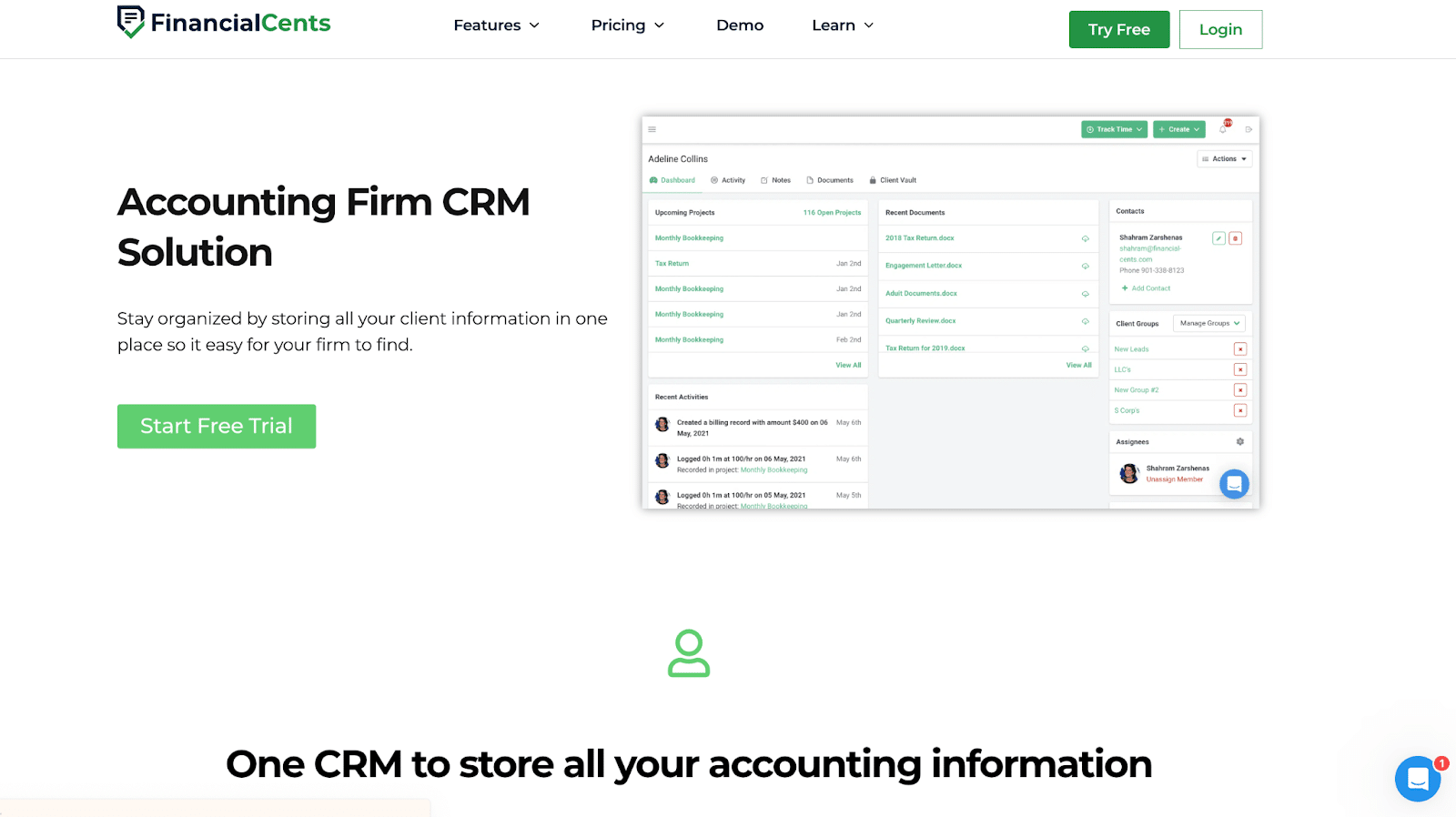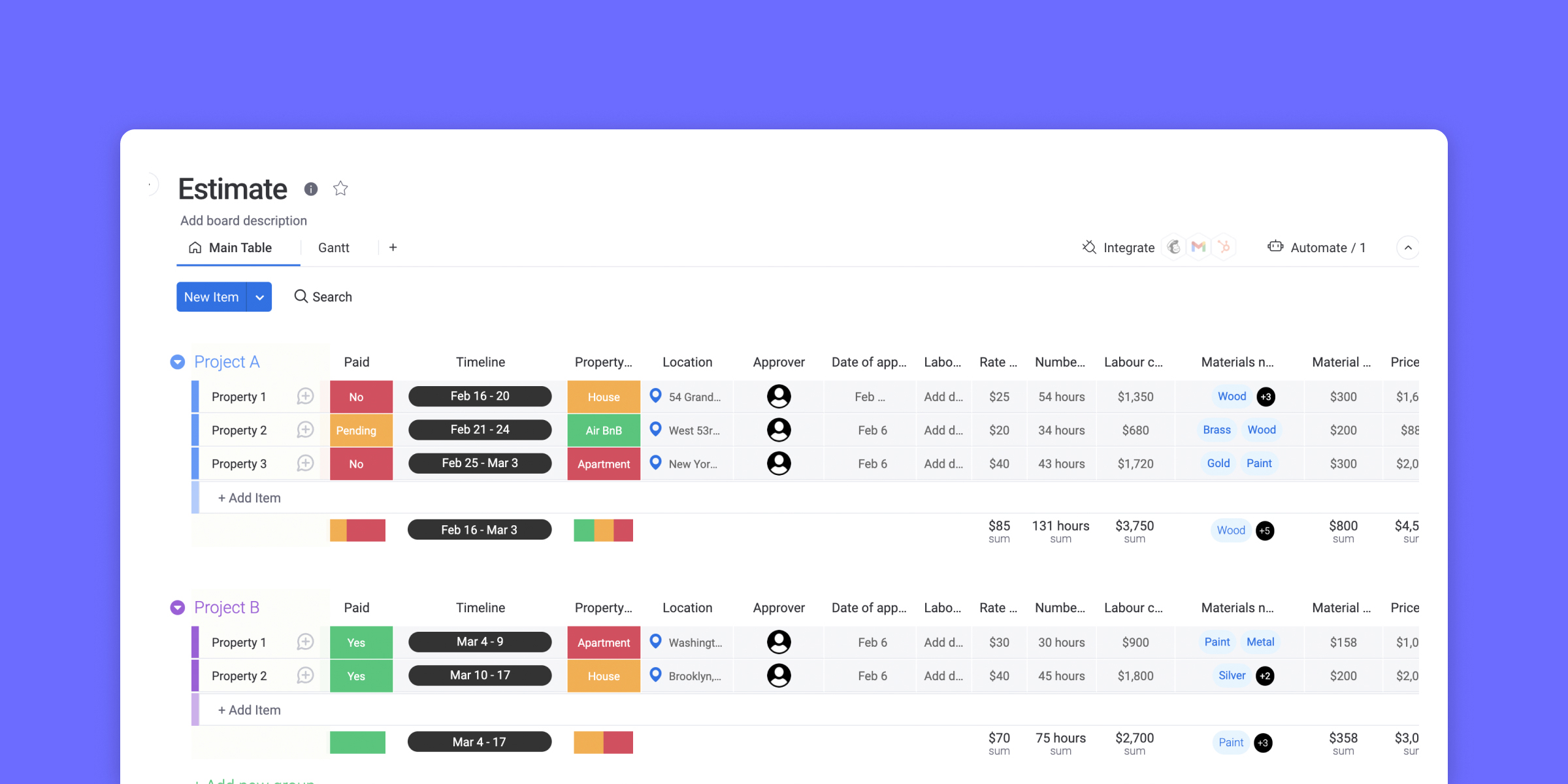With CRM estimating software taking center stage, we embark on a journey to unravel its transformative power. Discover the benefits, features, and best practices that will empower your sales team to reach new heights.
This comprehensive guide delves into the intricacies of CRM estimating software, providing actionable insights and expert advice to help you make informed decisions.
Introduction to CRM Estimating Software

CRM estimating software is a specialized tool designed to streamline and enhance the process of estimating costs, revenue, and profitability for businesses. It integrates with customer relationship management (CRM) systems, providing real-time access to customer data, sales history, and other relevant information.
By leveraging CRM estimating software, businesses can gain significant benefits, including improved accuracy and efficiency in estimating, enhanced collaboration and communication, and better decision-making based on data-driven insights.
Benefits of Using CRM Estimating Software
- Improved Accuracy and Efficiency:CRM estimating software automates calculations, reduces manual errors, and provides real-time data, resulting in more accurate and efficient estimates.
- Enhanced Collaboration and Communication:It facilitates seamless collaboration among sales, finance, and operations teams, enabling them to share information, track progress, and make informed decisions.
- Data-Driven Insights:CRM estimating software provides valuable insights into customer behavior, sales patterns, and profitability, enabling businesses to make data-driven decisions and optimize their sales strategies.
- Increased Sales Success:By providing accurate estimates, improving collaboration, and offering data-driven insights, CRM estimating software empowers businesses to increase their sales success rates.
Features of CRM Estimating Software
CRM estimating software offers a comprehensive suite of features designed to streamline the sales process and improve performance. These features include:
- Centralized customer data:Stores all customer information, including contact details, purchase history, and communication preferences, in a single, accessible location.
- Automated quote generation:Creates accurate and professional quotes based on predefined templates and product catalogs, saving time and reducing errors.
- Opportunity tracking:Tracks the progress of sales opportunities throughout the pipeline, providing visibility into the status of each deal and enabling sales teams to prioritize their efforts.
- Sales forecasting:Uses historical data and predictive analytics to forecast future sales, helping businesses plan their resources and set realistic goals.
- Performance reporting:Provides detailed reports on sales performance, including metrics such as conversion rates, average deal size, and sales cycle length, enabling managers to identify areas for improvement.
By leveraging these features, CRM estimating software can significantly improve sales performance by:
- Increasing efficiency:Automating tasks such as quote generation and opportunity tracking frees up sales reps to focus on building relationships and closing deals.
- Improving accuracy:Centralized customer data and automated quote generation reduce errors and ensure consistency in sales processes.
- Enhancing visibility:Opportunity tracking and sales forecasting provide managers with real-time insights into the sales pipeline, enabling them to make informed decisions and allocate resources effectively.
- Empowering sales teams:Performance reporting and other analytics empower sales reps to track their progress and identify areas for improvement, leading to increased motivation and productivity.
How to Choose the Right CRM Estimating Software

Selecting the right CRM estimating software is crucial for optimizing your sales process. Consider these factors when making your decision:
- Industry and Business Needs:Choose software tailored to your industry’s specific requirements and your business’s size and operations.
- Features and Functionality:Evaluate the software’s core features, such as lead management, quote generation, and reporting capabilities, to ensure it aligns with your workflow.
- Integration:Consider software that seamlessly integrates with your existing CRM system and other business applications.
- Scalability:Ensure the software can grow with your business as you scale, accommodating increasing data and user requirements.
- User Interface:Opt for software with an intuitive and user-friendly interface to enhance adoption and productivity.
Step-by-Step Guide to Evaluating and Choosing Software
Follow these steps to choose the right CRM estimating software for your business:
- Identify Requirements:Define your business needs and the specific features you require in the software.
- Research Options:Explore different software providers and compare their offerings based on your requirements.
- Request Demos:Schedule demonstrations with shortlisted vendors to get a hands-on experience with the software.
- Evaluate Functionality:Test the software’s features and capabilities during the demos to ensure they meet your expectations.
- Consider Integrations:Verify the software’s integration capabilities with your existing systems.
- Assess Scalability:Determine if the software can support your business growth and future requirements.
- Gather Feedback:Collect feedback from your team to ensure the software aligns with their needs and preferences.
- Make a Decision:Based on your evaluation, select the software that best fits your business requirements and goals.
Best Practices for Using CRM Estimating Software

Implementing CRM estimating software effectively requires a strategic approach. Here are some best practices to maximize its value:
Establish clear goals and objectives for using the software. This will guide the implementation process and ensure alignment with business needs.
Integration with Existing Systems
Integrate the CRM estimating software with other business systems, such as accounting, project management, and customer relationship management (CRM) systems. This will streamline data flow, improve accuracy, and enhance collaboration.
Data Management
Maintain accurate and up-to-date data in the software. Regularly review and cleanse data to ensure its integrity and reliability for accurate estimates.
User Training and Adoption
Provide comprehensive training to users on the software’s functionality and best practices. Encourage user adoption by highlighting the benefits and addressing any concerns.
Regular Review and Optimization
Regularly review the software’s performance and identify areas for improvement. Make adjustments as needed to optimize its effectiveness and align with changing business needs.
Maximize Software ROI
To maximize the return on investment (ROI) from CRM estimating software, consider the following strategies:
- Improved accuracy:The software can help reduce errors and improve the accuracy of estimates, leading to more profitable projects.
- Increased efficiency:Automated processes and centralized data streamline estimating tasks, saving time and resources.
- Enhanced collaboration:The software facilitates collaboration between project teams, improving communication and coordination.
- Better decision-making:Access to real-time data and historical estimates supports informed decision-making and strategic planning.
- Increased customer satisfaction:Accurate estimates and improved communication enhance customer satisfaction and build trust.
Examples of CRM Estimating Software

CRM estimating software is a valuable tool for businesses of all sizes. It can help you streamline your sales process, improve your accuracy, and close more deals. In this section, we will provide you with a list of some of the most popular CRM estimating software solutions on the market.
We will also include key features, pricing, and customer reviews for each solution.
When choosing a CRM estimating software solution, it is important to consider your specific needs. Some of the factors you may want to consider include:
- The number of users who will be using the software
- The types of estimates you need to create
- The level of integration you need with your other business systems
- Your budget
Once you have considered your needs, you can start to evaluate different CRM estimating software solutions. The following table provides a comparison of some of the most popular solutions on the market.
Popular CRM Estimating Software Solutions
| Software | Key Features | Pricing | Customer Reviews |
|---|---|---|---|
| Salesforce CPQ |
|
Starting at $1,000 per user per month |
|
| Oracle NetSuite CPQ |
|
Starting at $1,500 per user per month |
|
| SAP Hybris CPQ |
|
Starting at $2,000 per user per month |
|
| Microsoft Dynamics 365 Sales |
|
Starting at $65 per user per month |
|
| Zoho CRM |
|
Starting at $12 per user per month |
|
Trends in CRM Estimating Software
The CRM estimating software market is constantly evolving, with new trends emerging all the time. These trends are shaping the future of sales estimating, making it more accurate, efficient, and effective.
One of the most important trends is the increasing use of artificial intelligence (AI). AI can be used to automate many tasks, such as data entry and analysis. This can free up sales reps to focus on more strategic tasks, such as building relationships with customers and closing deals.
Integration with Other Business Systems
CRM estimating software is increasingly being integrated with other business systems, such as ERP and accounting systems. This integration can help to improve data accuracy and efficiency, and it can also make it easier to track the progress of sales opportunities.
Mobile Accessibility
Sales reps are increasingly using mobile devices to access CRM estimating software. This allows them to stay connected with customers and prospects while on the go. Mobile CRM estimating software can also help sales reps to close deals faster by providing them with the information they need at their fingertips.
Self-Service Features, Crm estimating software
Many CRM estimating software solutions now offer self-service features that allow customers to access information and make changes to their accounts. This can help to reduce the workload of sales reps and improve customer satisfaction.
Wrap-Up

As we conclude our exploration of CRM estimating software, we leave you with a renewed understanding of its capabilities and the transformative impact it can have on your sales performance. Embrace the future of sales estimating and unlock the potential for exceptional growth and success.
Answers to Common Questions
What is CRM estimating software?
CRM estimating software is a specialized tool that integrates with your CRM system to automate and streamline the sales estimating process, enhancing accuracy and efficiency.
How can CRM estimating software benefit my business?
CRM estimating software offers numerous benefits, including improved accuracy, reduced time spent on estimating, increased sales efficiency, and better collaboration between sales and finance teams.
What are the key features of CRM estimating software?
Key features include product catalogs, automated pricing calculations, customizable templates, approval workflows, and reporting and analytics.